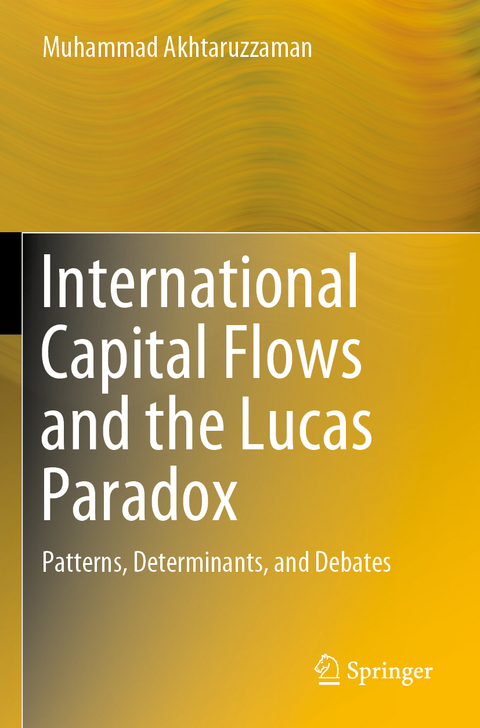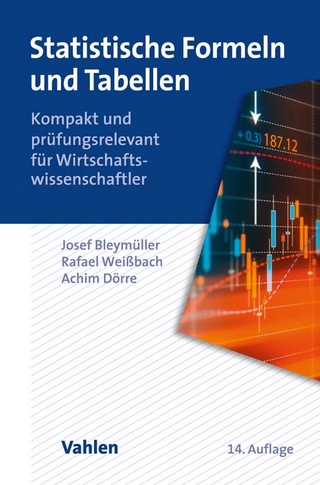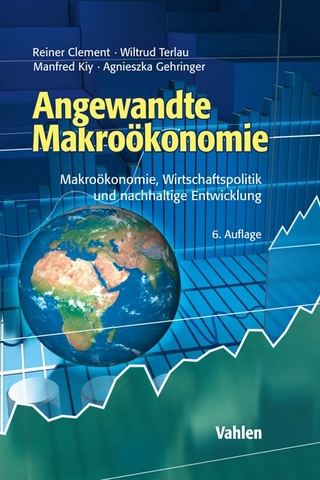
International Capital Flows and the Lucas Paradox
Patterns, Determinants, and Debates
Seiten
2020
|
1st ed. 2019
Springer Verlag, Singapore
978-981-13-9071-5 (ISBN)
Springer Verlag, Singapore
978-981-13-9071-5 (ISBN)
This book offers a comprehensive analysis of the debates on international capital flows, and presents a new evidence-based answer to the long-standing question of why capital doesn’t tend to flow from rich to poor countries as predicted by standard neoclassical theory – a puzzle known as the Lucas paradox. Further, the book reviews alternative approaches to conventional estimates of the marginal product of capital (MPK) and considers whether these estimates actually help us understand observed international capital flows.
A rigorous quantitative approach is subsequently used to provide clear empirical evidence on the determinants of capital flows across borders. The findings of this empirical analysis suggest that generous economic policies on capital account convertibility are more influential than differences in institutional quality in terms of determining international capital flows. In closing, the relative importance of various types of political risk (e.g. expropriationand corruption) is examined. After determining that expropriation risk has one of the greatest effects on foreign direct investment (FDI), the book proposes an appealingly intuitive explanation for the lack of FDI flows to many capital-scarce developing countries.
A rigorous quantitative approach is subsequently used to provide clear empirical evidence on the determinants of capital flows across borders. The findings of this empirical analysis suggest that generous economic policies on capital account convertibility are more influential than differences in institutional quality in terms of determining international capital flows. In closing, the relative importance of various types of political risk (e.g. expropriationand corruption) is examined. After determining that expropriation risk has one of the greatest effects on foreign direct investment (FDI), the book proposes an appealingly intuitive explanation for the lack of FDI flows to many capital-scarce developing countries.
Muhammad Akhtaruzzaman is Senior Lecturer at Toi Ohomai Institute of Technology, Rotorua, New Zealand. His research interests focus on international macroeconomics, empirical macroeconomics, development economics, and business and management.
Chapter 1: Review of the Neoclassical Theory of Capital Flows and Related Empirical.- Chapter 2: The Lucas Paradox: Alternative Estimates of Marginal Product of Capital.- Chapter 3: Estimating the Determinants of Capital Inflows Using Cross-Sectional Data.- Chapter 4: Panel and Non-Linear Models of Capital Inflows.- Chapter 5: Do Foreign Investors Fear Expropriation? Effects of Political Risk on FDI.- Chapter 6: Conclusion.
| Erscheinungsdatum | 18.07.2020 |
|---|---|
| Zusatzinfo | 25 Illustrations, color; 4 Illustrations, black and white; XVI, 203 p. 29 illus., 25 illus. in color. |
| Verlagsort | Singapore |
| Sprache | englisch |
| Maße | 155 x 235 mm |
| Themenwelt | Wirtschaft ► Volkswirtschaftslehre ► Makroökonomie |
| Schlagworte | capital account convertibility • capital account liberalization • capital account openness • Capital Controls • Capital flows • developing economy • emerging economy • expropriation risk • FDI • Fiscal Policy • Foreign Direct Investment • gross capital inflow • International Capital Flows • Lucas Paradox • marginal product of capital • monetary policy • Neoclassical Economics • net capital inflow • Total Factor Productivity |
| ISBN-10 | 981-13-9071-1 / 9811390711 |
| ISBN-13 | 978-981-13-9071-5 / 9789811390715 |
| Zustand | Neuware |
| Haben Sie eine Frage zum Produkt? |
Mehr entdecken
aus dem Bereich
aus dem Bereich
Kompakt und prüfungsrelevant für Wirtschaftswissenschaftler
Buch | Softcover (2021)
Vahlen, Franz (Verlag)
11,90 €
Makroökonomie, Wirtschaftspolitik und nachhaltige Entwicklung
Buch | Hardcover (2022)
Vahlen (Verlag)
49,80 €
Volkswirtschaftslehre für eine sich ändernde Welt
Buch | Hardcover (2024)
De Gruyter Oldenbourg (Verlag)
44,95 €


